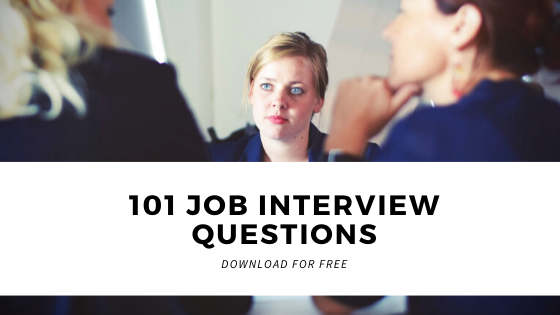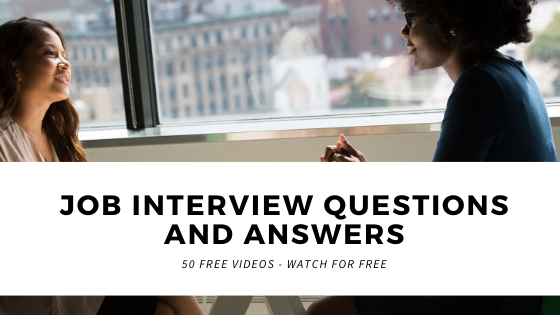The type of job interview questions being asked during recruitment processes has started to change. Why? Because commonly asked job interview questions are predictable, allowing interviewees to create and rehearse their answers prior to the job interview.
The well established, and easy to predict, job interview questions are being asked less frequently because a pre-rehearsed answer makes it difficult for an employer to accurately predict a candidate’s job performance – the goal of a job interview.
‘Are you a good team player?’ – to obvious for a modern day interview.
‘Have you ever taken a day off work?’ – the data is now gathered via an employer reference.
‘What motivates you?’ – predictable, with many answers lacking real substance and therefore insight into the employee’s work ethic.
Instead, a new style of personal-value interview questions are being asked, designed to uncover an applicant’s work ethic, motivational style and to predict a candidate’s job performance.
These interview questions are harder to predict as the questions don’t come up during a ‘job interview question’ Google search….until now!
New Interview Questions
What is the vision for your career?
At face value, this question feels like an employer is being friendly, asking about the applicant’s longer-term objective. Reading between the lines it is obvious that the employer is really asking about employee retention.
Open interviewees might well discuss different sectors they are interested in or mention starting up a business, some may talk about promotional opportunities and becoming an industry expert in the position they are applying for.
There are no right or wrong answers, from an applicant’s perspective, but to get hired employers are looking for a recruit who they can train up, support and develop, and in return an employee who desires to work, for a long timer within their organisation.
What was the decision for accepting the position at your last employer and the decision for leaving them?
A very cleverly worded interview question that strikes at the heart of the matter – an employees motivational pull.
Research shows that career professionals will spend a similar duration, give or take a year or two, with each employer. Answers like ‘I felt it was time to move on’ are clues to this employee’s mindset.
Mentioning a ‘challenge’ for both parts of the question indicates that the employee becomes easily bored.
‘Wanting to be part of a bigger organisation’ can show that an applicant has ambition.
One of the best ways to answer the second part of the question is for the applicant to state how they were very happy with their current employer and only decided to apply for another role after a friend shown them the job advert knowing that (the applicant) had always wanted to work for this organisation.
Imagine you had £7000 to spend on professional-development, what would you do with it?
Many of these new tricky interview questions can daunting, but often the roots of the question relate back to a traditional interview question(s). This question is a new version of the ‘what do you do to keep up with your professional development?’
When answering the question split the answer into two parts. Part 1 what you have currently done to develop your skills and Part 2 how you would spend the £7k
“I would love to have £70000 to spend on professional development. Over the past 2 years, I have focused on developing X and have completed X training courses, gaining skills that I have used to (give a unique selling point)…”
“…If I had £7000 I would want to develop (add specialist knowledge) as this could be used to (generate income)”
This interview answer template is saying 1) I am a lifelong learner 2) I utilise new learning to help to company achieve its objectives 3) I have all the basic industry knowledge so I would only require specific training that could add value to the organisation.
If you were me, what question would you ask you to uncover your weaknesses?
The framing of this question is perfect. The old ‘what are your weaknesses?’ interview question was pants, resulting in most interviewees saying ‘once I spot a weakness I develop my skills to overcome it.’ This response got a bit boring!
The update version is brilliant, with the interviewer putting the owness on the applicant. To be sure, the employer will be asking a follow up question to your reply.
(Candidate) ‘I would ask about X project I worked on’ (employer) ‘what happened on X project?’
Who has shaped you and what did they do?
Mentor-related interview questions are great as you can kill two birds with one stone by giving a two-part answer; requesting a mentor and how the mentor helped you to grow.
By explaining how, due to your passion for professional development, that you wanted to improve (a certain skill or knowledge) you approach a (mentor) This shows how you take it upon yourself to improve your skillset, that you can recognize potential areas of improvement and how you are proactive and confident enough to approach a work mentor.
When discussing the mentoring process stay away from when discussing the mentor’s experience in detail, just reference this before focusing on what you gain from being a mentee and more importantly how you implemented what you learnt into business as usual.
Why are you passionate about our brand?
The core of the interview question is ‘why do you want to work for us?’ But organisations, the bigger companies; Google, Microsoft, Coca-Cola, Disney, etc want to hire passionate employees.
Brands like Amazon are bringing to life their vision. Think about it, Amazon started off selling books and now have their ‘Prime’ services including; Prime TV, Prime Music, Alexa. This global vision is only achieved by hiring staff that can live the company values. To achieve this recruitment goal the hiring team requires passionate employees.
Discuss what it is you love about the company, their products, innovation, way of working.
Tell me about your current teammates?
Requesting an opinion about a team member, manager or organisation creates an insight into the candidate’s temperament.
Answering with ‘they are good but need me to lead them’ doesn’t show leadership, instead it hints to a poor teamwork attitude.
‘X team member was great, they would explain each project, set us a task, and check in to ensure we could meet the project deadlines.’ This type of interview answer highlights that the applicant will need micro-management and lacks initiative.
A good answer, to this question, would be one that explained how collectively you would share ideas to achieve an objective, but when required, for a project with a short deadline as an example, the applicant would take the lead. Giving a couple of different real-life examples will ensure the interview answers meets the marks for the interview scorecard.
What didn’t you add to your CV because you thought is was unprofessional?
On average a CV is only 2 pages long – far from enough to add all of a career professionals’ experiences and skills. In addition, many applicants will miss information as they will deem it unimportant for the job role they are applying for.
When answering interview questions about missing information, the applicant still needs to bear in mind the essential criteria recorded in the job description – don’t go to off-script.
Talking about an earlier job role (after leaving school) and how you gain a skill that you have continued to develop over the course of a career works well, as does joking about a random hobby, before relating how the skill gained from (hobby) is utilised in the day to day task in your current role.
How old was you when you started working?
With many career professionals now working from home or having flexible working contracts, work ethic is high on a recruiter’s radar.
Being asked about what seems an unimportant period in your career is one-way employers understand the motivation of the person they are interviewing. As for example, an applicant talks about how they started a part-time job at the age of 14 to earn extra money for a new pair of trainers shows a person’s attitude towards life, and work.
Applying for additional work experience or volunteering to gain new skills shows work ethic. Even for those who started work at a later stage in their life, answering the question by saying my first job was when I was 25, previously to this I….(give a detailed explanation of what the interviewee did and the reason for their choice) allows an employer to understand what drives the individual.
If we had a review session in 12 months’ time, what would you be discussing with me?
The answer to the review interview question depends on the industry each applicant works in. What is required for all sectors is the ability to think about the objectives of the advertised position; to increase sales, meet project targets, team leadership, increasing website hits) and explain how you be discussing the steps you took to achieve the objective (and then explain each step you took).
You could also say your pay rise, but that joke doesn’t always go down well!
Tell me about a time when you almost failed and what you did to succeed?
When discussing a negative, which this interview questioned is designed to make you do, interviewees need to think about how they will frame the negative.
To answer the ‘failed’ interview question, follow this simple 3 step process
Step 1 – explain the situation, task or project
Step 2 – detail the failure – here is where you set the new frame; you can reference the external forces that created the failure – a most recent example would the impact of COVID which was unpredictable.
Step 3 – showcase your ability and skill set by explaining the actions you took to make the failure into a success.
Personality Interview Questions
One new style of job interviewing is strength-based interviewing where questions are framed with options or to check an applicant’s preferred style of working. The interview question focuses on what the applicant enjoys doing rather than what they can do, allowing recruiters to hire candidates that match their way of working, while reviewing the interviewee’s ability to meet the minimum standard required to be hired.
Some example strength based interview questions are:
Are you better at finding a problem or a solution?
Do you prefer to start or finish task?
Don’t worry about answering these questions as there are no right or wrong answers, you are stating your preference. You can, if inclined to, research the company to understand how they operate to give you an idea of the ‘perfect’ answer.
As an example a ‘blue-sky thinking’ company may ask “to achieve an objective do you implement well-used methods or think out the box?” For a creative company, they may prefer an answer relating to being ‘innovative’.

Job Interview Advice















